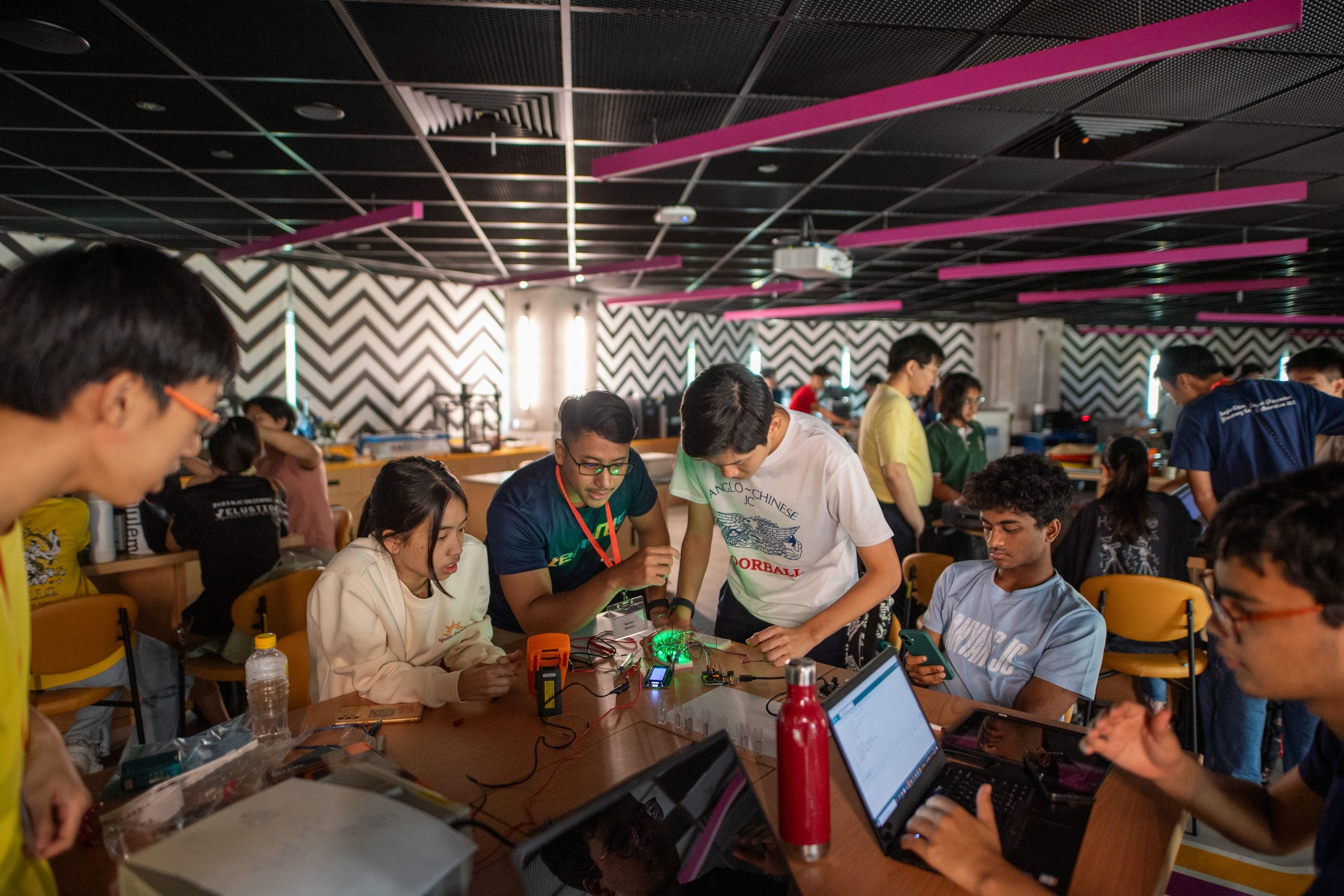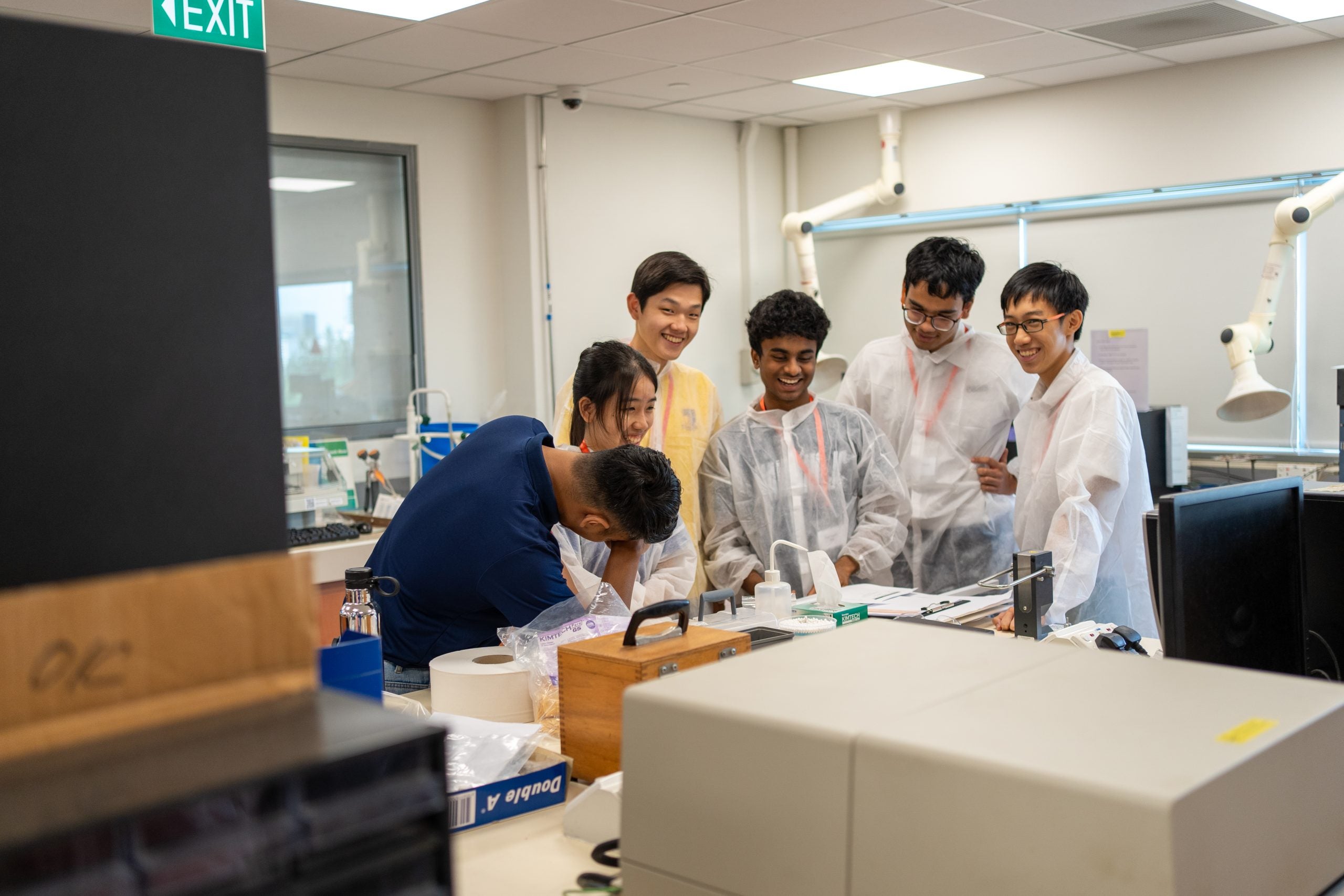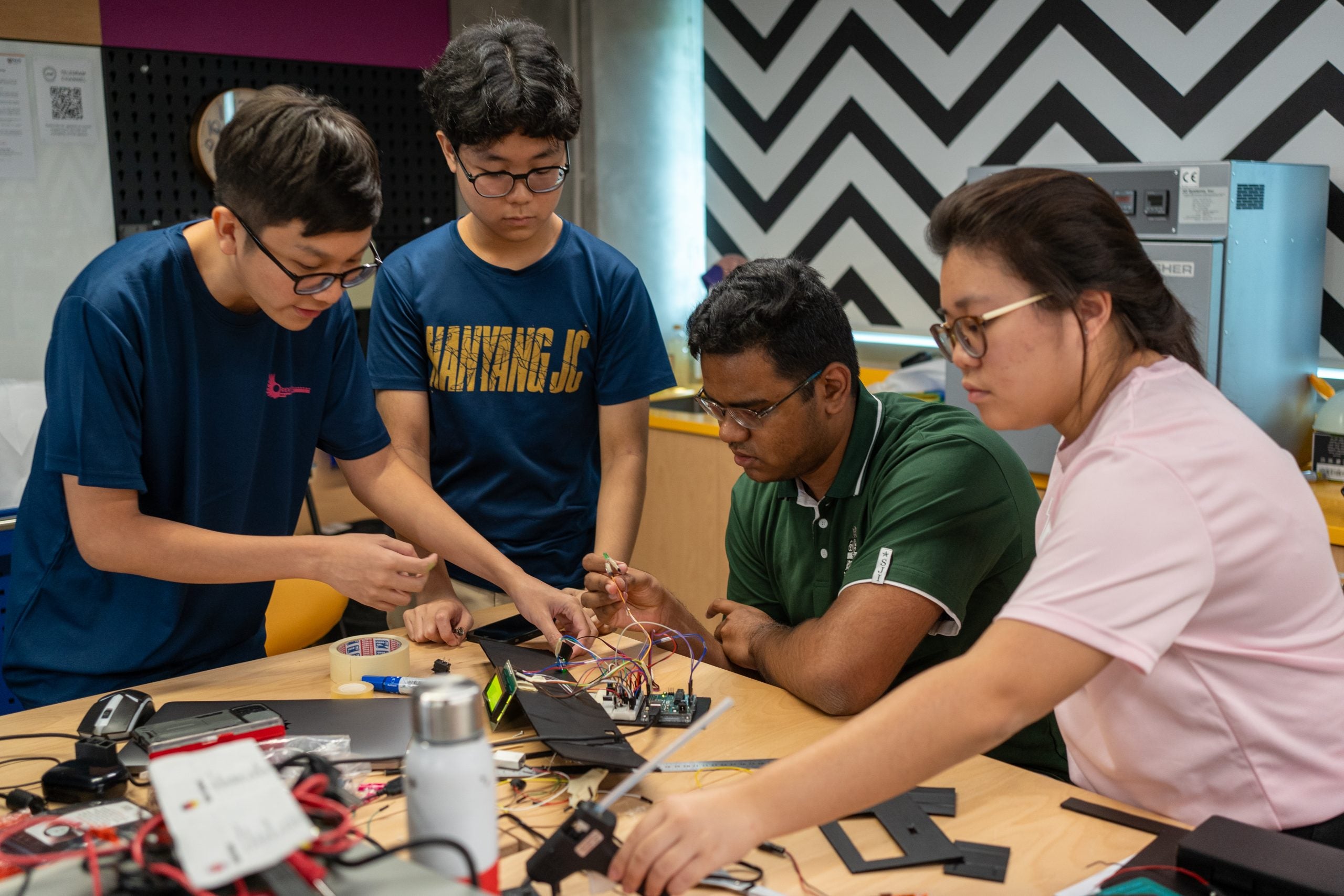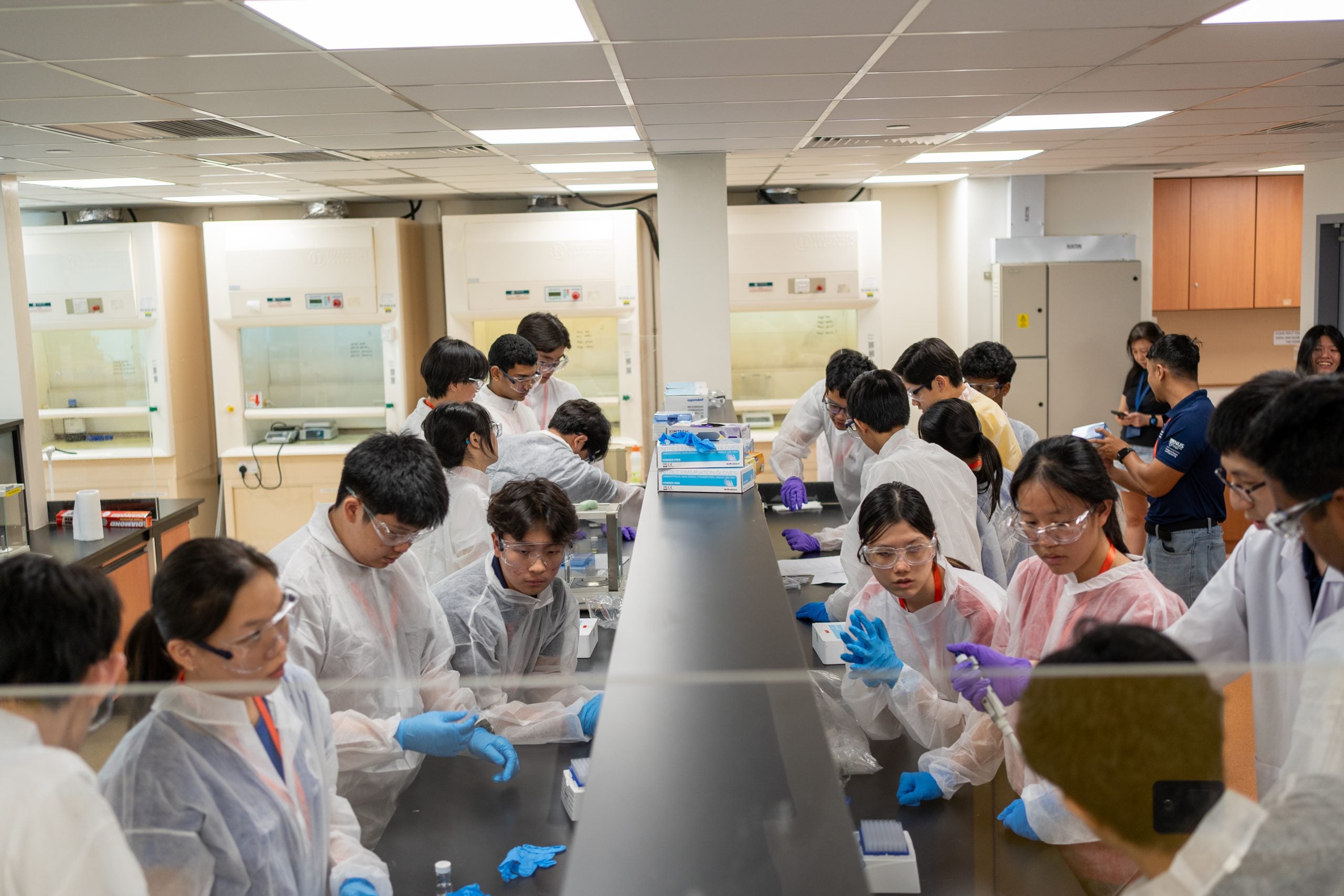Pre-University Engagement
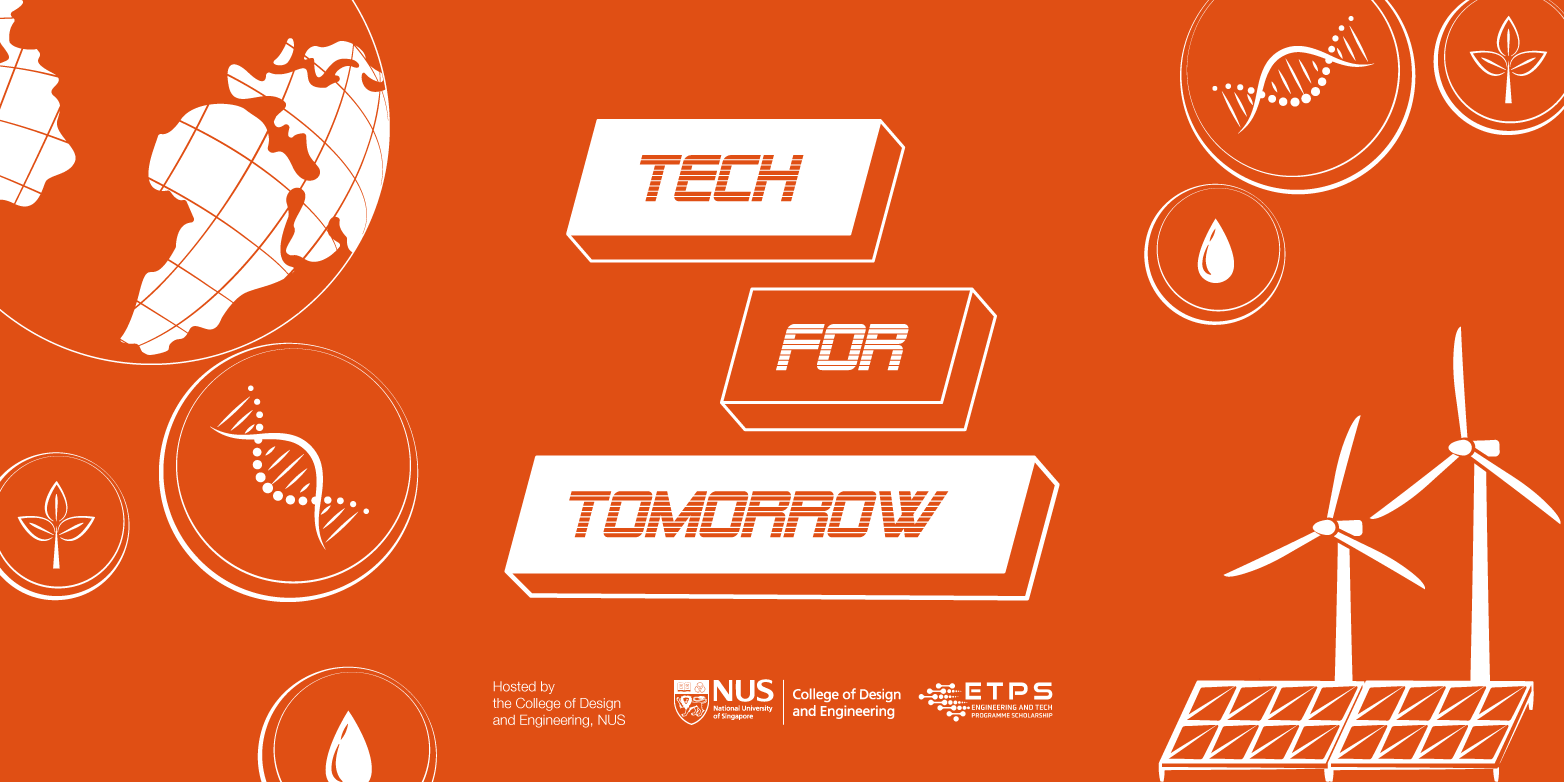
MOE Engineering & Tech Programme Scholarship (ETPS) Workshop
Healthcare Technology Theme
In the evolving landscape of personalized health monitoring, there is a growing need for integrated solutions that provide comprehensive and real-time insights into an individual’s health. Students will learn how to address these needs through developing an integrated glucose and heart rate sensor, to enhance the overall health management experience for individuals with chronic conditions, leading to better outcomes and improved quality of life.
Challenge:
Develop an integrated glucose and heart rate sensor that combines the functionalities of glucose measurement and heart rate tracking into a single, user-friendly device. This integrated solution should provide seamless and real-time data, allowing users to monitor both parameters simultaneously and gain insights into how changes in one may affect the other. The device should enhance data accuracy, improve user convenience, and offer actionable insights to better manage health conditions and improve overall wellness.
Deliverables:
- Design and build an integrated glucose and heart rate sensor that combines the functionalities of glucose measurement and heart rate tracking into a single, user-friendly device.
- 10-min project presentation
Gallery
Instructors
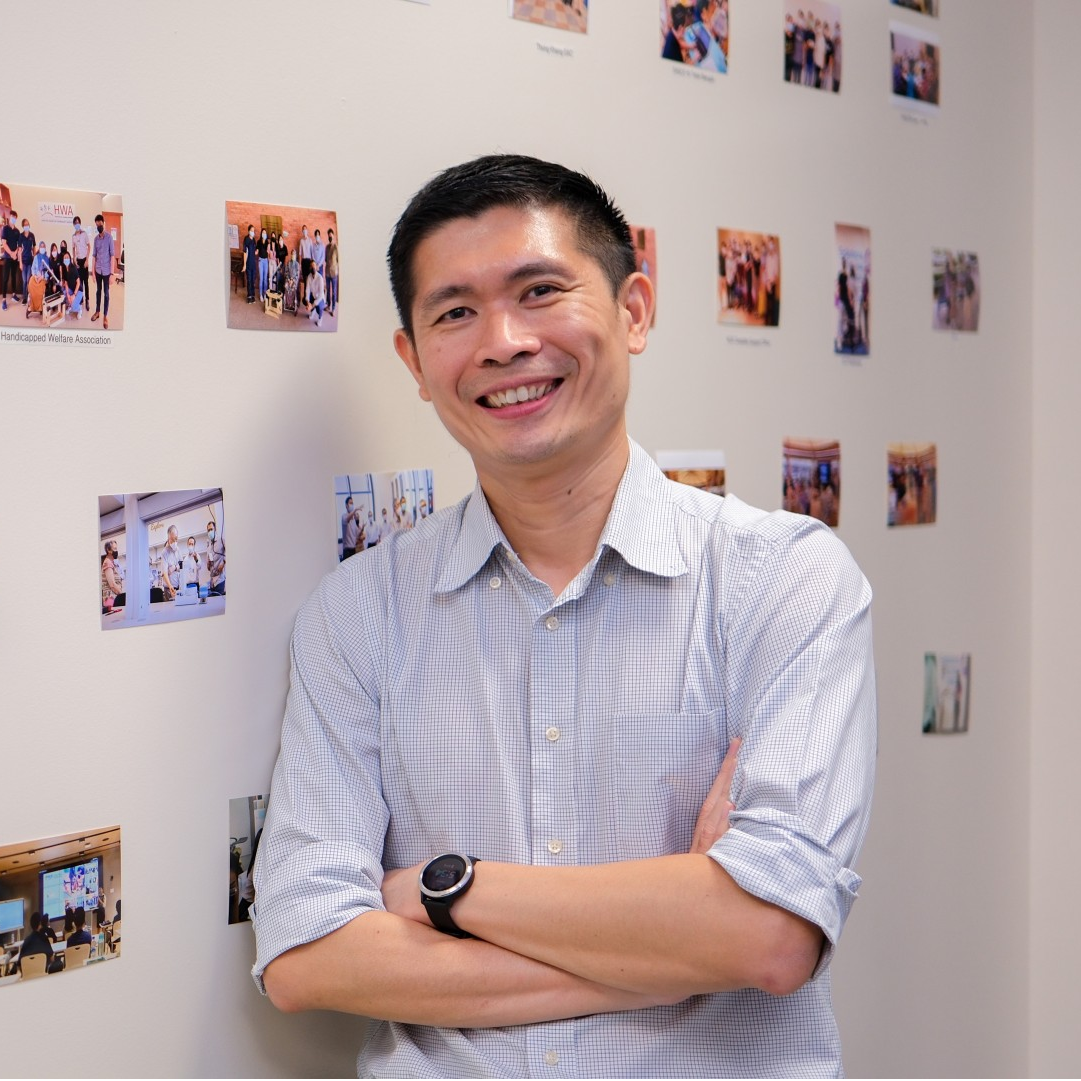
A/Prof James Kah
Vice Dean (Outreach & Special Projects)
Associate Professor, Department of Biomedical Engineering
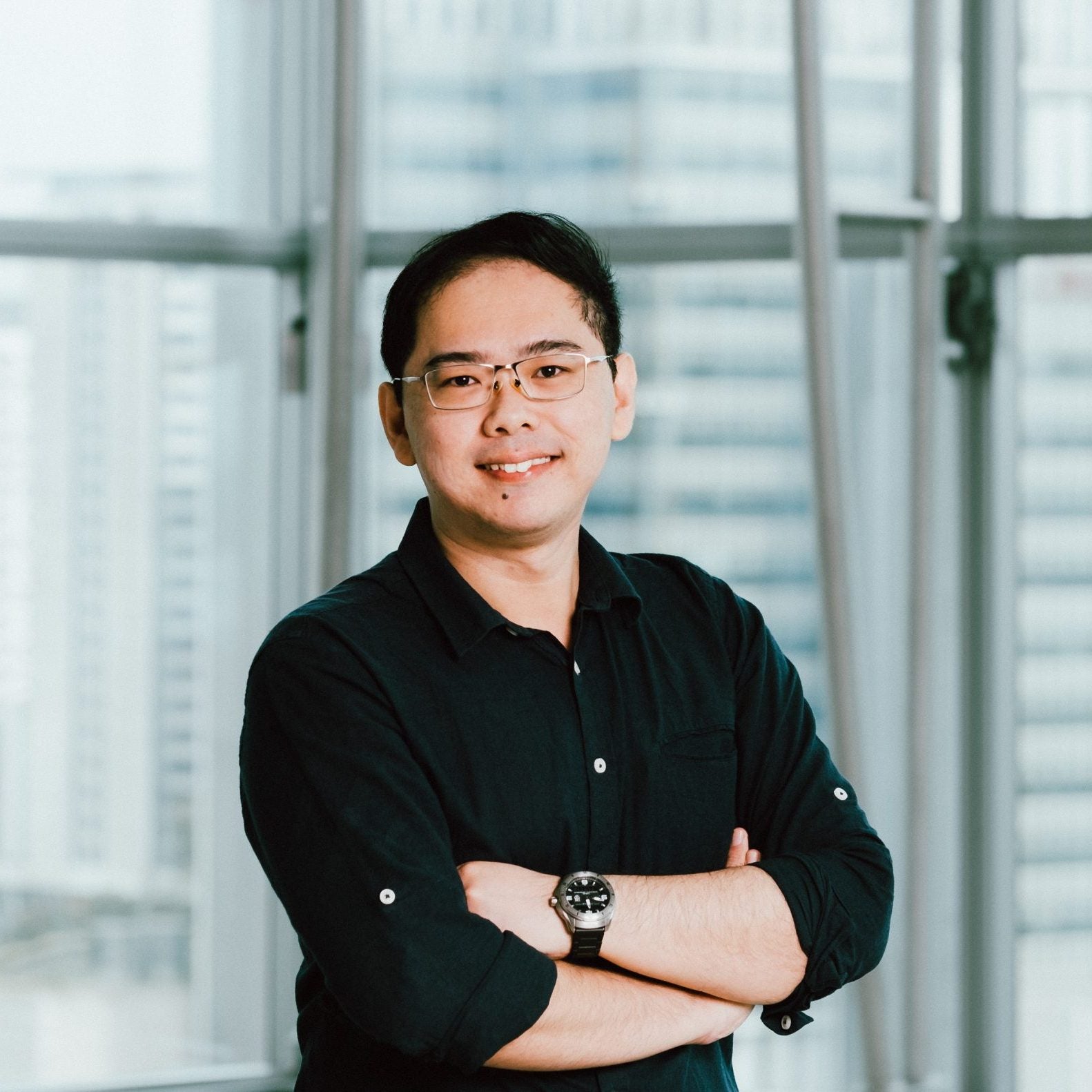
Dr. Vincent Lee
Assistant Dean (Outreach & Special Projects)
Lecturer, Department of Materials Science & Engineering (MSE)
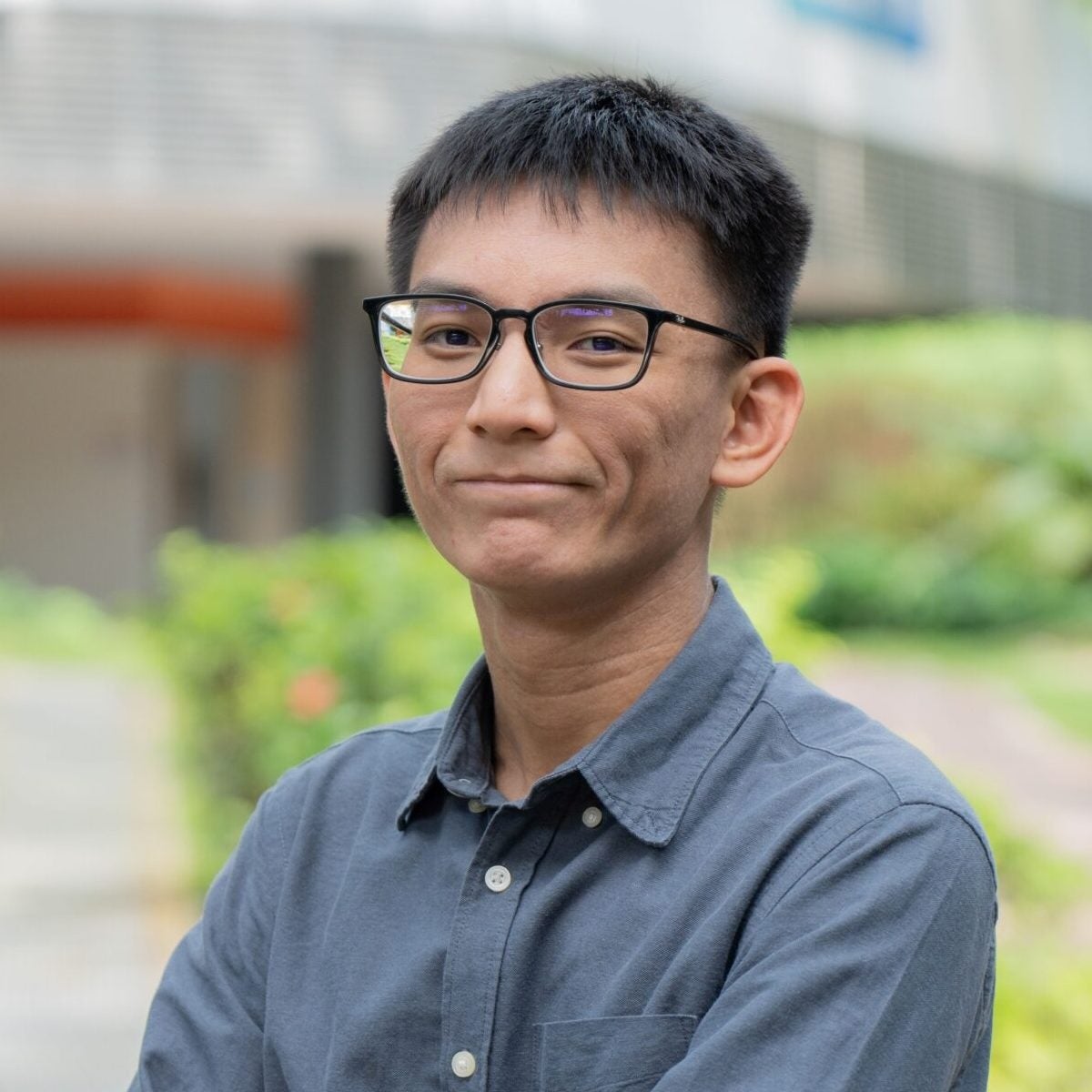
Royston Shieh
Teaching Assistant, Engineering Design and Innovation Centre (EDIC)
Workshop Schedule
6 January 2025
| Day | Time | Programme | Venue | Instructors |
| 1 | 8.30am - 9am | Light Breakfast | EA Atrium Level 1 | |
| 9am - 10am | Welcome Speech, Introduction to CDE | LT7A | ||
| 10am - 10.30am | Project Briefing | LT7A | ||
| 10.30am - 12.30pm | Workshop 1: Nanomedicine _________________________________________ Lecture introducing the concept of nanomaterials in medicine and biosensor, theory of plasmonic materials, understanding the concept of UV-Vis spectroscopy, and scanning electron microscopy. |
LT7A | Dr Vincent Lee | |
| 12.30pm - 1.30pm | Lunch | EA Atrium Level 1 | ||
| 1.30pm - 4.30pm | Workshop 1: Nanomedicine _________________________________________ Laboratory practical session where students will synthesise Au nanoparticles as bio-sensing component for glucose detection. Students will learn the use of UV-Vis spectrometer and scanning electron microscopy to better understand the effects of glucose concentration on the Au nanoparticle formation and visible light wavelength absorption. |
E3A Level 5 Materials Science & Engineering Lab | Dr Vincent Lee | |
| 4.30pm - 5.30pm | Free and Easy Group Discussions | E3A Level 5 Materials Science & Engineering Lab |
7 January 2025
| Day | Time | Programme | Venue | Instructors |
| 2 | 9am - 9.30am | Light Breakfast | EA Atrium Level 1 | |
| 9.30am - 11.30am |
Workshop 2: Basic Circuit and Measurement _________________________________________ The lecture will first introduce students to the basics of circuit connections and measurements. |
EA Level 4 Innovation & Design Hub | A/Prof James Kah | |
| 11.30am - 12.30pm |
Workshop 3: Introduction to Arduino _________________________________________ This workshop will introduce the fundamentals of Arduino programming to integrate PPG sensor and LCD display in Workshop 4. |
EA Level 4 Innovation & Design Hub |
A/Prof James Kah | |
| 12.30pm - 1.30pm | Lunch | EA Atrium Level 1 | ||
| 1.30pm - 2pm | Design Thinking and Innovation Sharing by Dyson | LT7A | ||
| 2pm - 3pm |
Workshop 3: Introduction to Arduino _________________________________________ This workshop will introduce the fundamentals of Arduino programming to integrate PPG sensor and LCD display in Workshop 4. |
EA Level 4 Innovation & Design Hub |
A/Prof James Kah | |
| 3pm - 5pm |
Workshop 4: Photoplethysmography _________________________________________ Laboratory practical session where students will then gain experience in programming both a PPG sensor and LCD display with an Arduino microcontroller before integrating them into a working medical device prototype capable of measuring and displaying their heart rate. |
EA Level 4 Innovation & Design Hub |
A/Prof James Kah | |
| 5pm - 5.30pm | Free and Easy Group Discussions | EA Level 4 Innovation & Design Hub |
8 January 2025
| Day | Time | Programme | Venue | Instructors |
| 3 | 9am - 9.30am | Light Breakfast | EA Atrium Level 1 | |
| 9.30am - 10.30am | Workshop 5: Biophotonics _________________________________________ The lecture will first introduce students to the fundamentals of light and optics before focusing on the Beer-Lambert law and its application in photometry to determine the absorbance of a sample. |
EA Level 4 Innovation & Design Hub |
A/Prof James Kah | |
| 10.30am - 12.30pm | Workshop 5: Biophotonics _________________________________________ Laboratory practical session where students will set up a simple photometry circuit to measure the absorbance of a liquid sample. |
EA Level 4 Innovation & Design Hub |
A/Prof James Kah | |
| 12.30pm - 1.30pm | Lunch | EA Atrium Level 1 | ||
| 1.30pm - 5pm | Workshop 6: 3D Printing _________________________________________ This session comprises both a lecture and a laboratory practical. The lecture will first introduce students to 3D printing (fused deposition modelling) and CAD (computer aided design). Students will then gain experience through the lab practical to design a cuvette holder using CAD software and later using a FDM 3D printer to print out the prototype. |
EA Level 4 Innovation & Design Hub |
Royston Shieh | |
| 5pm - 5.30pm | Free and Easy Group Discussions | EA Level 4 Innovation & Design Hub |
9 January 2025
| Day | Time | Programme | Venue | Instructors |
| 4 | 9am - 9.30am | Light Breakfast | EA Atrium Level 1 | |
| 9.30am - 12.30pm | Workshop 7: Systems Integration _________________________________________ This session will serve to integrate the learning from all the previous four sessions where students will assemble an integrated glucose and heart rate sensor that combines the functionalities of glucose measurement and heart rate tracking into a single, user-friendly device. |
EA Level 4 Innovation & Design Hub |
A/Prof James Kah | |
| 12.30pm - 1.30pm | Lunch | EA Atrium Level 1 | ||
| 1.30pm - 3.30pm | Free and Easy Prototyping (1h) | EA Level 4 Innovation & Design Hub |
||
| Tour @ iHealthTech Lab (1h) | E7 | |||
| 3.30pm - 5.30pm | Free and Easy Prototyping | EA Level 4 Innovation & Design Hub |
10 January 2025
| Day | Time | Programme | Venue | Instructors |
| 5 | 9am - 9.30am | Light Breakfast | EA Atrium Level 1 | |
| 9.30am - 12pm | Final Testing & Preparation | EA Level 4 Innovation & Design Hub |
||
| 12pm - 1pm | Lunch | EA Atrium Level 1 | ||
| 1pm - 3.30pm | Intracluster Presentation | LT7A | ||
| 3.30pm - 5.30pm | Final Presentation & Prize Presentation | LT7A | ||
| 5.30pm onwards | Tea Reception (Free-and-easy) | EA Atrium Level 1 |




